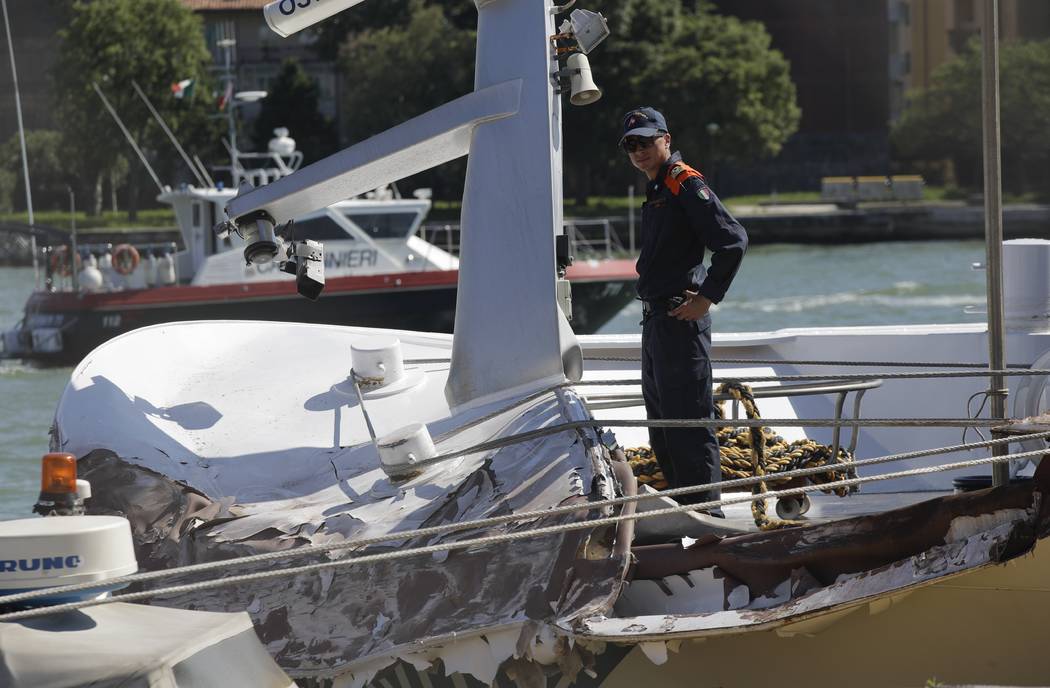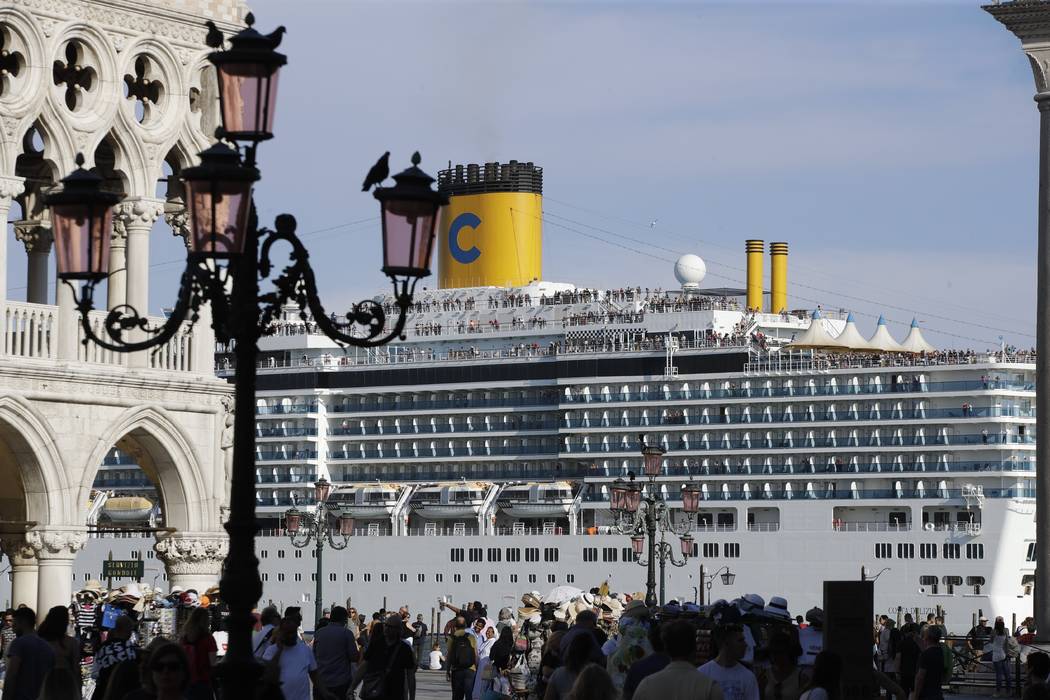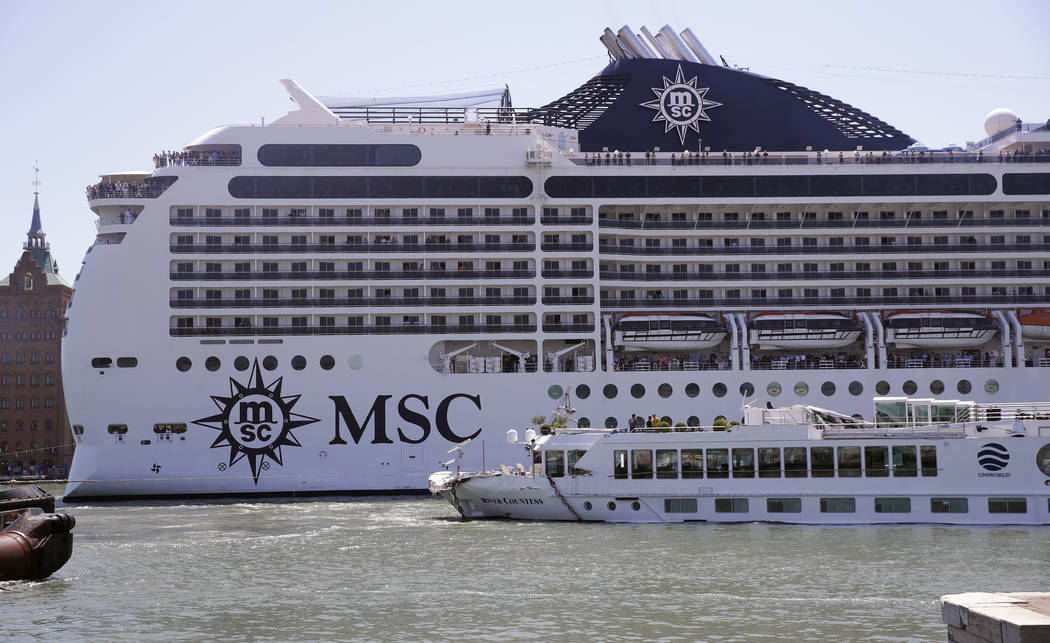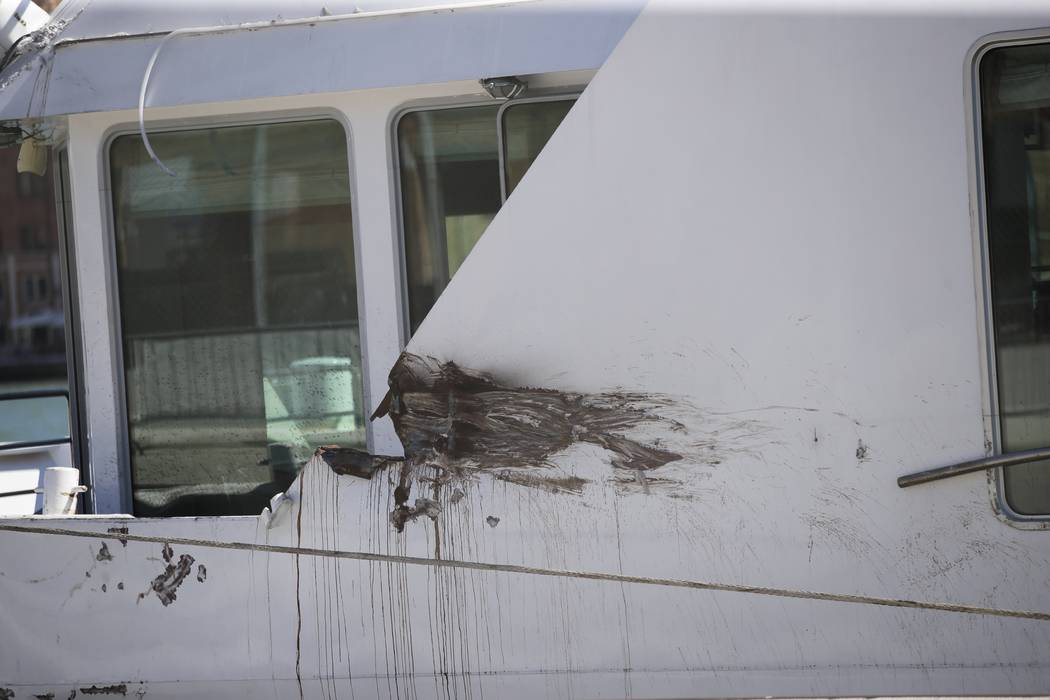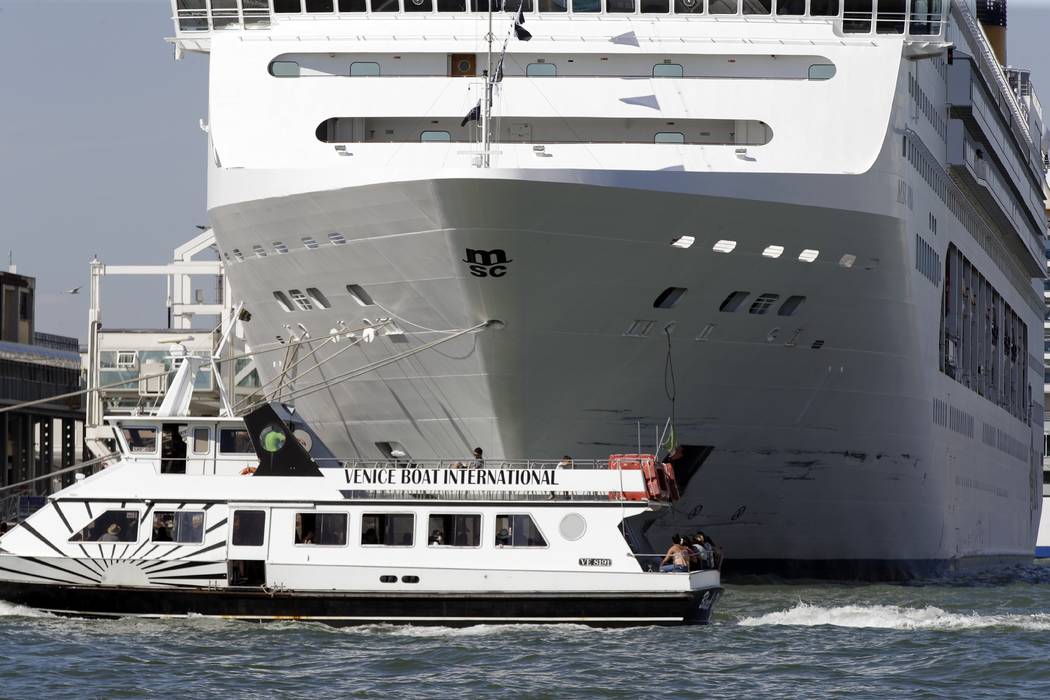5 injured in Venice as cruise ship slams into tourist boat
VENICE, Italy — A towering, out-of-control cruise ship rammed into a dock and a tourist riverboat on a busy Venice canal on Sunday morning, injuring five people, officials said. The collision sparked new calls for placing restrictions on cruise ships in the famed city.
The crash happened about 8:30 a.m. on the Giudecca Canal, a major thoroughfare that leads to St. Mark’s Square in the northeastern Italian city.
The MSC Opera cruise ship, apparently unable to stop, blared its horn as it slammed into the much smaller River Countess boat and the dock as dozens of people run away in panic. In videos of the crash, people were seen rushing to disembark from the moored riverboat over a short gangplank, and at least two people were left caught on the walkway as the vessel was dislodged from the pier.
Elisabetta Pasqualin was watering plants on her terrace when she heard warning sirens and stepped out to see the crash.
“There was this huge ship in a diagonal position in the Giudecca Canal, with a tugboat near which seemed like it couldn’t do anything,” she said.
She described the ship “advancing slowly but inevitably towards the dock.” She said “the bow of the ship crashed hard into the bank with its massive weight crushing a big piece of it. Sirens were wailing loudly; it was a very dramatic scene.”
When the cruise ship rammed the riverboat, she said the smaller vessel looked like it was “made of plastic or paper” rather than steel.
Local officials said five women aboard the riverboat were injured. They said one was released immediately from a hospital, while four others were advised to remain under medical care for a few days.
Earlier, medical authorities said four of the women — an American, a New Zealander and two Australians between the ages of 67 and 72 — were injured falling or trying to run away when the cruise ship rammed into the River Countess.
Venice is a tremendously popular site for both tourists and cruise ships, especially during the summer tourist season.
The cruise ship’s owner, MSC Cruises, said the vessel was about to dock at a passenger terminal in Venice when it had a mechanical problem. Two tugboats guiding the cruise ship into Venice tried to stop the MSC Opera, but they were unable to prevent it from ramming into the riverboat.
“The two tugboats tried to stop the giant and then a tow cable broke, cut by the collision with the riverboat,” Davide Calderan, president of a tugboat association in Venice, told the Italian news agency ANSA.
Calderan said the cruise ship’s engine was locked when the captain called for help.
Italian media posted an audio clip of the MSC Opera’s pilot telling emergency officials that the ship experienced a loss of controls and “activated all the procedures to avoid what in the end happened, which was an impact.”
On an audio clip, the pilot said anchors were dropped and that tugboats connected to the ship’s bow and stern took maneuvers to stop the ship. “Here on the bridge, we don’t understand what happened,” the pilot is heard saying. An investigation was launched.
The collision froze boat traffic in the busy canal, and forced another MSC cruise ship to drop anchors in front of the historic city as it waited for the damaged vessels to be removed. Coincidentally, this famous maritime city on Sunday was celebrating an ancient tradition called the “Marriage of the Sea,” which features processions of boats. But the crash forced parts of the celebration to be canceled, Italian media reported.
Following the collision, calls for banning cruise ships in Venice, long a source of contention in the over-extended tourist city, were renewed.
For many, the crash served as a wake-up call. Opponents say cruise ships are out-of-scale for Venice, cause pollution, endanger the lagoon’s ecosystem and a danger.
“Obviously, we’ve seen today that our worst fears have come true,” said Jane Da Mosto, an environmental scientist and executive director of We Are Here Venice. Her group backs efforts to ban cruise ships from Venice.
“There were 111 people on the river cruise boat that the big ship crashed into. They could have all died,” she said. She said the cruise ship could have plowed through the concrete embankment and “hit houses, monuments and crowds of people.”
“The port authority, the government ministers, the other institutions have often tried to ridicule the resistance movement against the cruise ships, saying that an accident like this could never occur,” she added. “The government shouldn’t be so weak in giving in to the pressure of the lobby groups, like the cruise ship companies.”
The collision came four days after a river cruise ship collided with a sightseeing boat carrying South Korean tourists in Hungary’s capital, killing seven and leaving 21 others missing.
Not everyone in Venice is opposed to the cruise ships. Pasqualin, the woman who witnessed the collision, counted herself among those prior to Sunday’s crash.
“I’ve always been positive about the ships, but I have to admit I’ve started to change my mind now, because this was a tragic, terrible and dramatic scene,” she said.
Italian officials said the collision underscored the need to ban cruise ships from using the busy Giudecca Canal, but they stopped short of calling for a ban on cruise ships.
“Today’s accident in the port of Venice proves that cruise ships shouldn’t be allowed to pass down the Giudecca anymore,” said Danilo Toninelli, Italy’s transport minister. “After many years of inertia, we are finally close to a solution to protect both the lagoon and tourism.”
The MSC Opera was built in 2004. It can carry over 2,675 passengers in 1,071 cabins. According to its sailing schedule, it left Venice on May 26 and traveled to Kotor, Montenegro, and Mykonos, Santorini and Corfu in Greece before returning Sunday to Venice.
Cain Burdeau reported from Castelbuono, Sicily.



